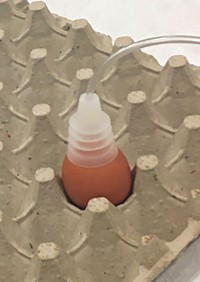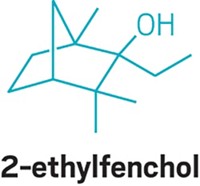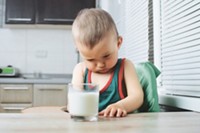Advertisement
Grab your lab coat. Let's get started
Welcome!
Welcome!
Create an account below to get 6 C&EN articles per month, receive newsletters and more - all free.
It seems this is your first time logging in online. Please enter the following information to continue.
As an ACS member you automatically get access to this site. All we need is few more details to create your reading experience.
Not you? Sign in with a different account.
Not you? Sign in with a different account.
ERROR 1
ERROR 1
ERROR 2
ERROR 2
ERROR 2
ERROR 2
ERROR 2
Password and Confirm password must match.
If you have an ACS member number, please enter it here so we can link this account to your membership. (optional)
ERROR 2
ACS values your privacy. By submitting your information, you are gaining access to C&EN and subscribing to our weekly newsletter. We use the information you provide to make your reading experience better, and we will never sell your data to third party members.
Chemical Communication
Newscripts
Scent as a motivational muse
by Leigh Krietsch Boerner
January 2, 2021
| A version of this story appeared in
Volume 99, Issue 1

A whiff to inspire workouts
As an unpredictable year ends, many of us still turn to a predictable resolution for the new year: to get more exercise. But what if your sense of smell could move you to move more? Researchers at the University of California, Riverside, think that might be the case, if you’ve got the right genes . . . and you’re a mouse.
A team led by biologists Sachiko Haga-Yamanaka and Theodore Garland Jr. found that mice bred to voluntarily exercise had distinctly different senses of smell than mice that didn’t exercise (PLOS One 2020, DOI: 10.1371/journal.pone.0241758).
The researchers selected mice that chose to run on a wheel when given the option. They then bred 88 generations of these exerciser mice and looked at their vomeronasal organs, olfactory organs that can pick up pheromones. The team found significant differences between the genes that control receptors in the vomeronasal organs in exerciser mice and those in mice that are less keen on working out.
“Our results so far show that high runners perceive smells differently from regular mice,” Haga-Yamanaka tells Newscripts. The researchers aren’t sure what these receptors’ roles are, but they do know from past studies that mice change how much they exercise when the bodily secretions from other mice are around, she says. So it’s possible that smells from others drive mice to jump on their wheels. The team plans to examine the chemical components of these smells in the future, Haga-Yamanaka says.
If this smell-to-play motivation could be replicated in humans, the researchers say, maybe we could one day spray a perfume that would get our butts to the gym. Humans don’t seem to have a vomeronasal organ as mice do, but they obviously have a sense of smell, Haga-Yamanaka says. “Some vomeronasal receptors are known to be expressed in the olfactory organ in humans, and some of the central brain circuitry is very similar,” she says, so this mouse model might apply to humans to some extent.
But it’s worth remembering, as with all mouse studies, that mice are not people, so take all the necessary grains of salt with that.
Helpful smells
Rats are just squirrels with bad PR (it’s hard to rebound from causing a plague), but new research may boost their reputation a bit. Researchers found that when one rat helps another, it gives off a specific odor. And once other rats get a whiff of the helpful rat, they start being helpful too (Proc. R. Soc. B 2020, DOI: 10.1098/rspb.2020.2327).
Scientists already knew that rats are helpful to one another, but they didn’t know what triggers these acts of altruism. To find out, researchers led by behavioral biologist and postdoctoral scholar Nina Gerber at the University of Göttingen gave rats the opportunity to push a tray of food into another rat’s cage. That rat got to eat the food, but the rats that chose to deliver a meal didn’t get any kind of reward.
The team then wafted odors at test rats: either the scent of a nonhelpful rat or the smell of a rat that had been helpful in another room that the test rat could not see. When a test rat smelled the helpful rat’s scent, the test rat was more likely to push the tray of food to its ratty friend, even though the test rat didn’t witness the altruistic act taking place.
This helpfulness scent is not specific to an individual rat. Rather, being helpful makes the smell. Any rat that is helpful can emit the cooperative smell, which nearby rats can pick up.
Scientists don’t know if a response to a cooperative smell is a phenomenon in humans, but the Newscripts gang suggests that the smell of freshly baked cookies is a reliable method for summoning human helpers.
Please send comments and suggestions to newscripts@acs.org.





Join the conversation
Contact the reporter
Submit a Letter to the Editor for publication
Engage with us on Twitter